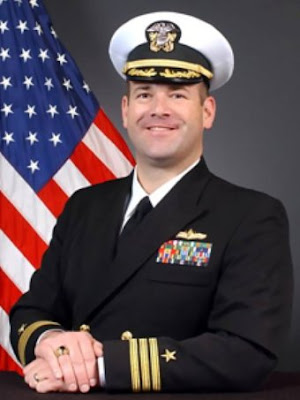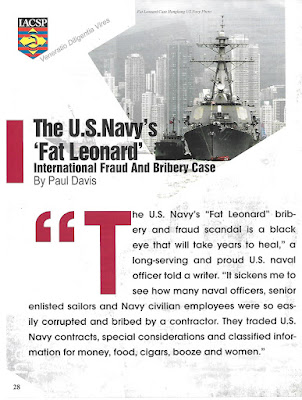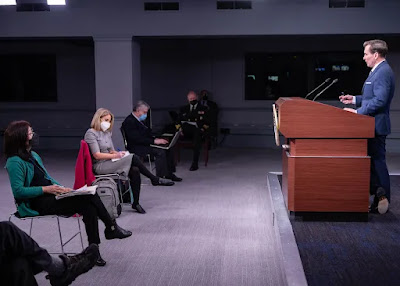I recall visiting Japan as an 18-year-old sailor
while stationed aboard the aircraft carrier USS Kitty Hawk in 1971.
The Kitty Hawk was temporarily relieved from combat operations on “Yankee
Station” in the gulf of Tonkin off the coast of North Vietnam by another
aircraft carrier and we set sail for Sasebo, Japan for our
scheduled R&R period.
The
Japanese had been my father’s bitter enemy, as he served as an Underwater
Demolition Team (UDT) frogman in the Pacific during WWII. The old chief
participated in some grueling and bloody battles on the Japanese-held beaches
and islands, yet he held no rancor against the Japanese, and he appeared to be
as excited as I was about my visit to the Land of the Rising Sun.
I became
particularly interested in Japan in 1965 when I read Ian Fleming’s
thriller You Only Live Twice. Although I later enjoyed the 1967
film, starring Sean Connery as James Bond, I thought the movie was a bit silly
and should have adapted the novel more faithfully. I was disappointed that the
film makers did not make use of the novel’s original plot or tap into the
cultural differences between the West and Japan, as Fleming had done so well in
his novel.
I prepared
for my visit to Japan by re-reading the novel, reading a couple of travel books
that I picked up, and my ever-ready "travel bible” - an old paperback
edition of Ian Fleming’s travelogue, Thrilling Cities, which included a chapter on
Japan.Shortly
after the Kitty Hawk docked in Sasebo, I and other sailors headed towards the
city’s area known as “Paradise Alley,’ where the bars catered to American
sailors.
I was with a fellow sailor who knew Sasebo from the previous Kitty Hawk cruise, and we visited his old bar and drank and danced with the bar girls. After a couple of hours, my friend suggested that we go and have what Americans called a Hotzi bath and massage. We left the bar and visited a nearby public bathhouse, called a Sento.
We first sat in a sauna, where we sweated out the alcohol
from our bodies. Then, after a rigorous shower, we slipped into the steaming hot public bath. After a while, we left the bath and went into another room
for a massage. There were no “happy endings” here, but the massage was very satisfying.
My massage was administered by a slight and
pretty Japanese girl who had the strength of a sumo wrestler. She squeezed, pressed,
pounded and applied karate-type blows to my body. When we left the Sento,
I felt so good that I thought I could leap over a tall building.
It was a beautiful spring day, so we walked up a narrow street. I
spotted a small store that could have been an antique shop or a pawn shop, as I had no idea as the signs were in Japanese. But what I spied in the shop window
quickly drew me in.
In the
center of the window was an old and glorious set of Samurai swords. I didn’t
know much about Samurai swords at the time, other than the cursory
knowledge I gleaned from the books I read, but these swords looked authentic to
me. I entered the shop and bowed to the proprietor, an elderly man, and I
pulled out a handful of yen, pointing towards the swords in the window.
His
response was in Japanese, spoken softly as he continued to bow up and down. I
bowed back, having read somewhere that the more you bow, the more humble and
polite you are. Of course, the proprietor was always two bows ahead of me, as
he had a lot more practice at this than I.
Thankfully,
a young woman customer spoke English and she politely informed me that the
swords were not for sale. She explained that the swords belonged to the
proprietor’s ancestors. I bowed again, twice, and quickly bowed out of the
store. (It would be another 25 years before I finally bought a set of Samurai
swords for my collection).
We spent the rest of the day and evening in a bar,
and while most Americans were drinking beer or whisky, I was drinking Sake,
Japanese rice wine. There is a saying that notes the man drinks the first
three cups of Sake, and the next three cups of Sake drink the
man.
Well, after five cups of Sake, I needed to
get some air and I left the bar. My friend followed me up the street where we
saw a small restaurant. The smell coming from the restaurant was enticing. We
entered the restaurant and I stepped up to the counter. The menus were banners hanging
from a ceiling, and of course they were written in Japanese. A man sitting next
me to me was eating steamed vegetables and as I liked the smell, I motioned to
the waitress that this was what we wanted. Although I was not big on vegetables,
steamed or otherwise, after consuming the Sake, I thought this was a
fantastic meal.
I pulled out my money and having no idea the rate
of exchange for Japanese yen to dollars, I gave the waitress a stack of yen. As
we walked down the street, I heard someone yelling, “American-San! American-San!”
(San is an honorific). I turned and saw the waitress coming towards me. She
bowed and I bowed back. She bowed again and handed me some yen. I gathered that
I gave her too much money for the meal. I bowed and shook my head as I handed her
back the bills. She bowed and would not accept the offered bills.
She bowed again and turned and walked back towards
the restaurant. I said to my friend, “Can you image any other place in
Southeast Asia where this would happen? Only in Japan.”
My friend replied, “In other places, they would
come out and cut our throats for the rest of our money.”
We headed back to the bar, where we drank and danced with a couple
of beautiful Japanese girls. After drinking much Sake, I ended my night in a nearby hotel.
That was my eventful first day in Sasebo. I also visited Nagasaki for two days. It was a great week to be in Japan.
Then the USS Kitty Hawk shoved off and headed back
to Yankee Station and the war.
You can read my other sea stories, vignettes, humor pieces and short stories about my time in the Navy via the below link:











































